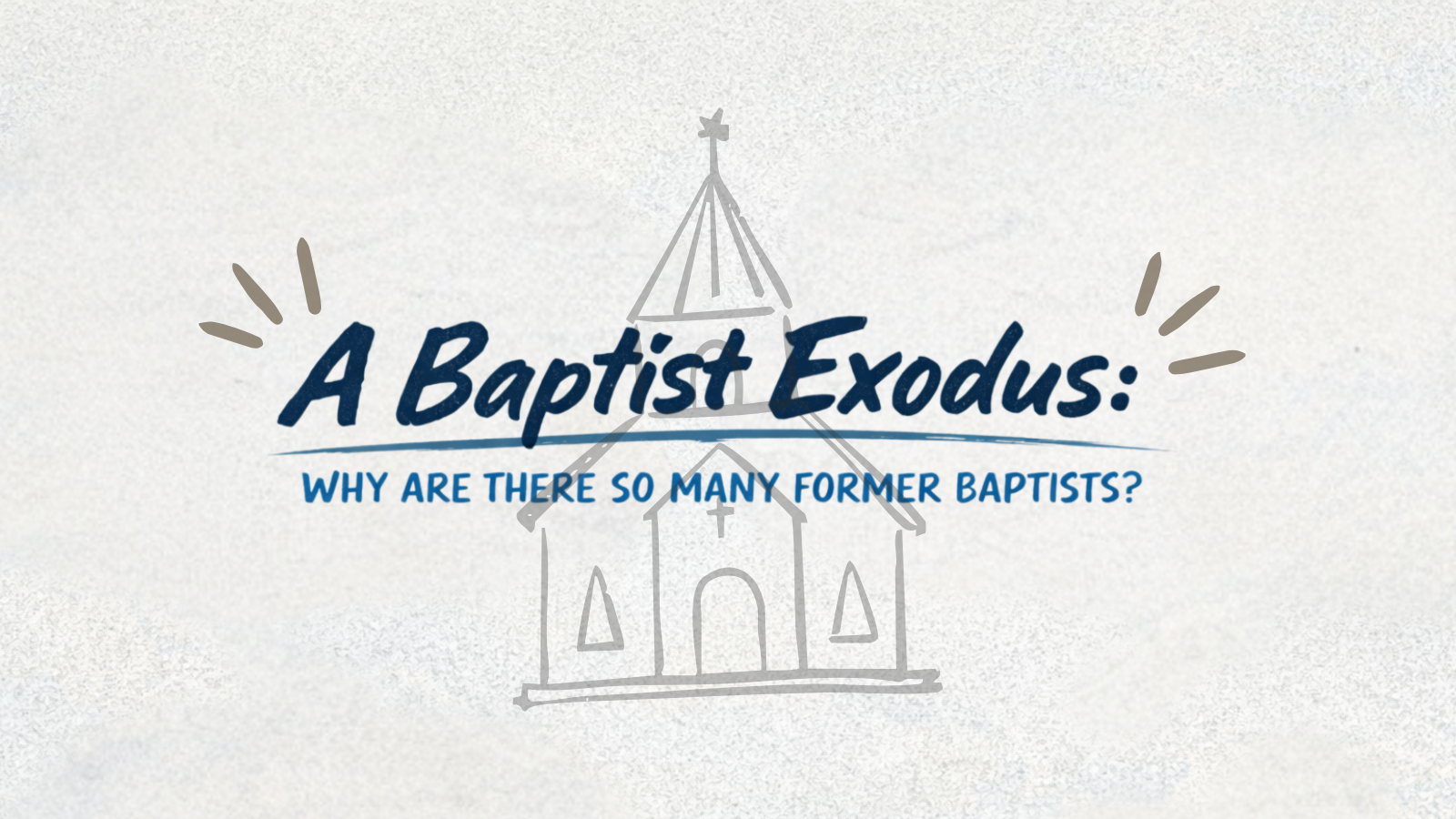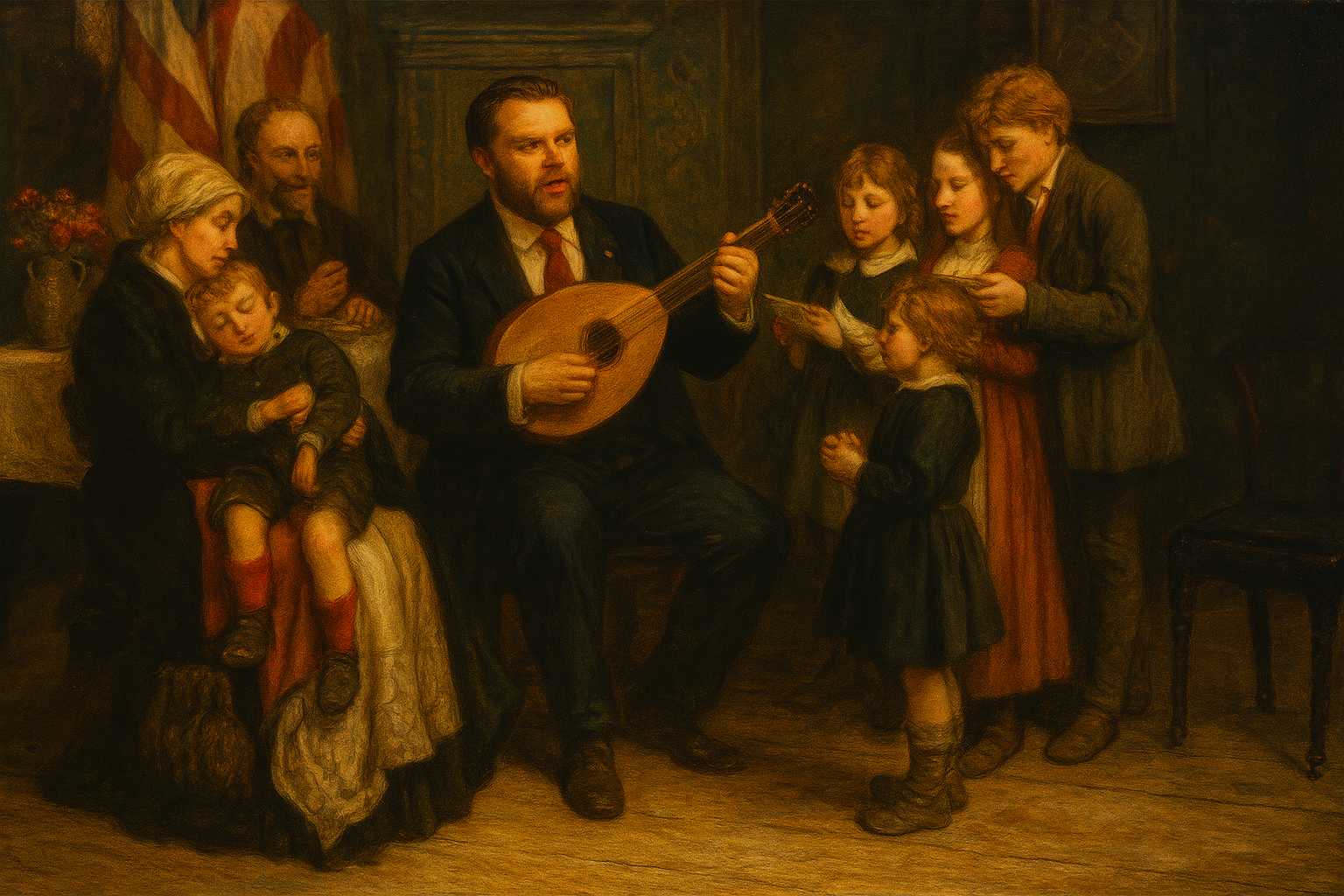
Escape from Reason
Thoughts on Christ, Culture, and How the West Lost Its Mind
A Baptist Exodus: Why Are There So Many Former Baptists?
A growing number of Baptists are leaving for higher church traditions—and the reasons may be closer to home than we think.
The Best and Most Disappointing Books of 2025
A year-end reflection on the best and most disappointing books read in 2025.
My Top 5 CBC Sermons of 2025
These five sermons from Christ Bible Church stood out in 2025 for their biblical depth, pastoral clarity, and insistence that Christ actually changes everything.
Christmas as War: Darkness, Light, Singing, and the Incarnation
Christmas is not sentimental escape but God’s invasion of a dark world, where the incarnation marks the decisive war between light and darkness and declares the certain victory of Christ.
The Christian Cosmos: Why a Christian Nation Doesn’t Go Far Enough
While Baptists often hesitate to call anything beyond regenerated individuals “Christian,” Scripture shows that we can rightly use the term in four ways—conversion, correspondence, content, and consummation—since Christ is redeeming and transforming all things in the cosmos by the blood of his cross.
“Natural Affections” and the Biblical Ordering of Our Loves (Part 3)
God’s covenants—not biology or “natural affections”—redefine how we should love family, church, and nation, showing the true order of our obligations.
“Natural Affections” and the Biblical Ordering of Our Loves (Part 2)
The Bible expands, rather than replaces, our obligations—calling us to love both our families and the family of God.
“Natural Affections” and the Biblical Ordering of Our Loves (Part 1)
Our cultural chaos—on race, nation, and natural affections—stems from a false nature/grace divide, and we won’t find clarity until we recover the biblical storyline of creation, fall, and redemption.
Loving Yourself Isn’t Enough
The modern gospel of self-love promises freedom but delivers despair. True joy and meaning aren’t found in loving yourself but in loving God and neighbor through the self-giving love of Christ.
What a Friend: Five Principles for Christian Friendships
To be a Christian friend, you must first be a friend of Jesus.
Christendom, Classical Liberalism, and the Future
To reject classical liberalism is to overlook its Protestant roots and risk replacing biblical principles with flawed alternatives.
A Protestant Deformation: Is Partiality Ever Allowed?
Ideas have consequences. Some in the Reformed camp are now defending partiality—something they once opposed in CRT. What was once recognized as sinful is now being justified, mirroring the arguments of the regressive left.
Trust and Obey: Obedience Is the Opener of Eyes
Christianity today has become a soul-searching, navel-gazing mess, paralyzed by introspection and a misguided obsession with idol-hunting, when what’s needed is simple: to look to Jesus and obey.
Eye for an Eye Isn’t What You Think
An eye for an eye isn’t personal vengeance—it’s God’s blueprint for justice.
Misunderstood Justice: “Do Justice, Love Mercy, and Walk Humbly with God”
Micah 6:8 is one of the most commonly misunderstood Bible passages today, primarily because we often confuse mercy with justice. A closer examination reveals that this verse is not about social justice but rather about repentance and covenant faithfulness.
The Misunderstood Battle Cry: “Be Still and Know That I Am God”
Bible verses are often taken out of context to support personal agendas. Psalm 46:10 is a clear example. While it’s commonly understood as a call for personal peace, it’s actually God commanding the nations to stop their rebellion and acknowledge his authority.
The Church’s Never-Ending Culture War
Cultural warring as Christians is not optional. Christ is King, and the church brings with her a distinct culture wherever she goes and will remain involved in a culture war until Christ returns.
Shepherds for Sale: The Consequences of Bad Theological Ideas
Many mainline denominations, once bastions of orthodoxy, are now hollow shells with rainbow flags. In Megan Basham's latest book, Shepherds for Sale, she exposes how the secular left has targeted evangelicals in an effort to change their beliefs. Ideas have consequences, and theological ideas carry the greatest consequences.
Pray for the Republic: A Call for Churches to Obey 1 Timothy 2:1–3
Do you pray for political leaders? Such prayers aren’t a distraction from the gospel ministry of the church but align with God’s desire to see all people saved.
What Is a Woman, Anyway? From J.K. Rowling to the Bible
Why is J.K. Rowling’s feminist spell ineffective against transgenderism? Because it suffers from the same problem: making men and women indistinguishable.




















